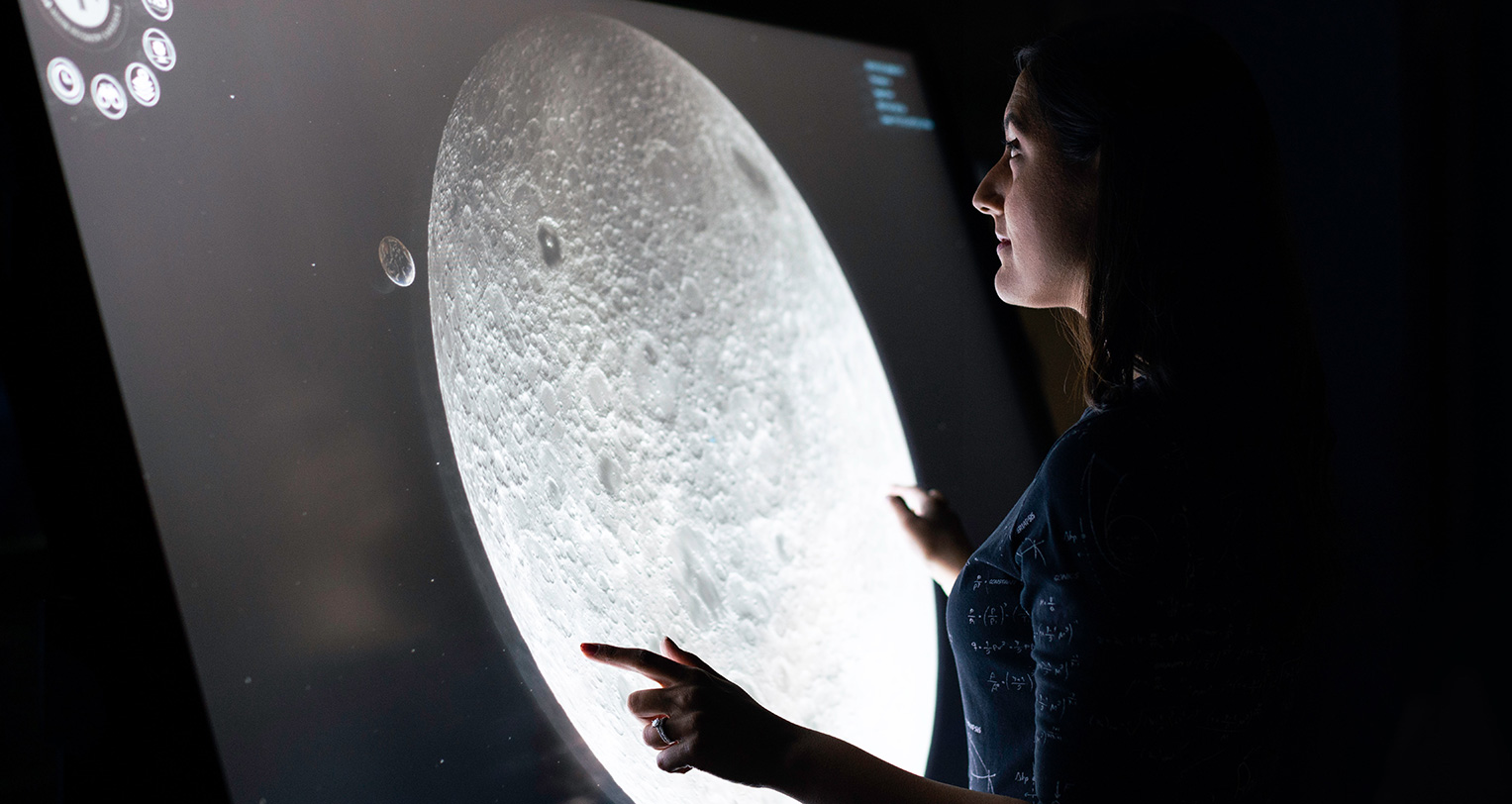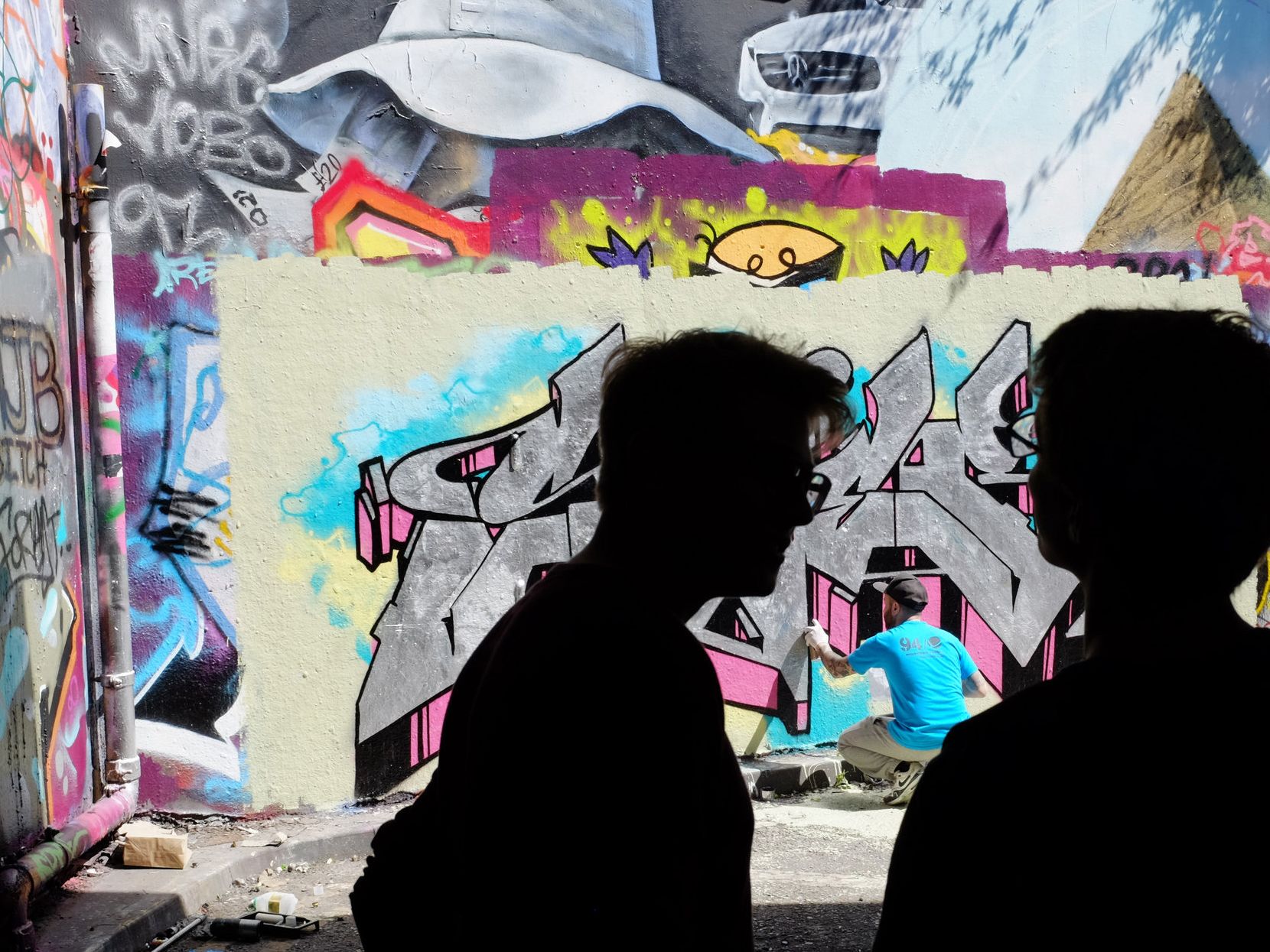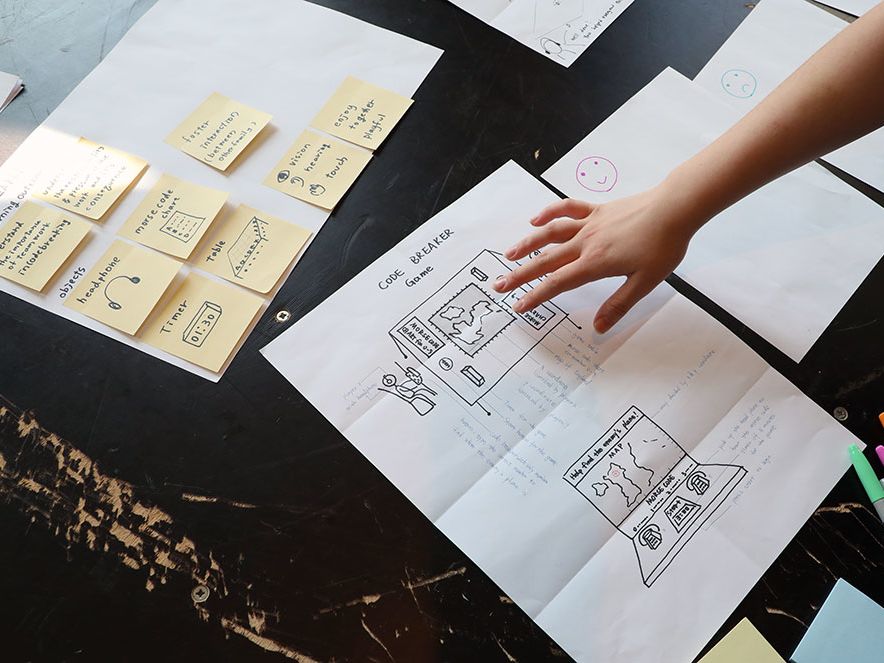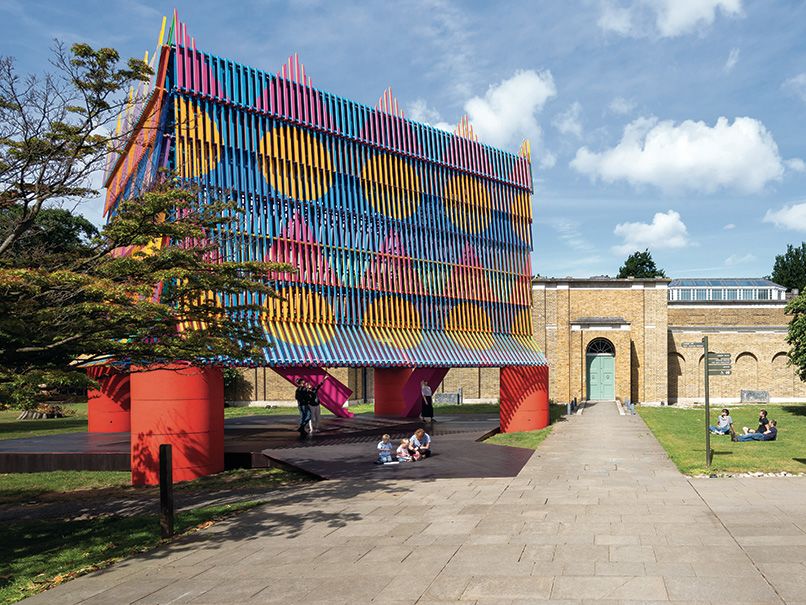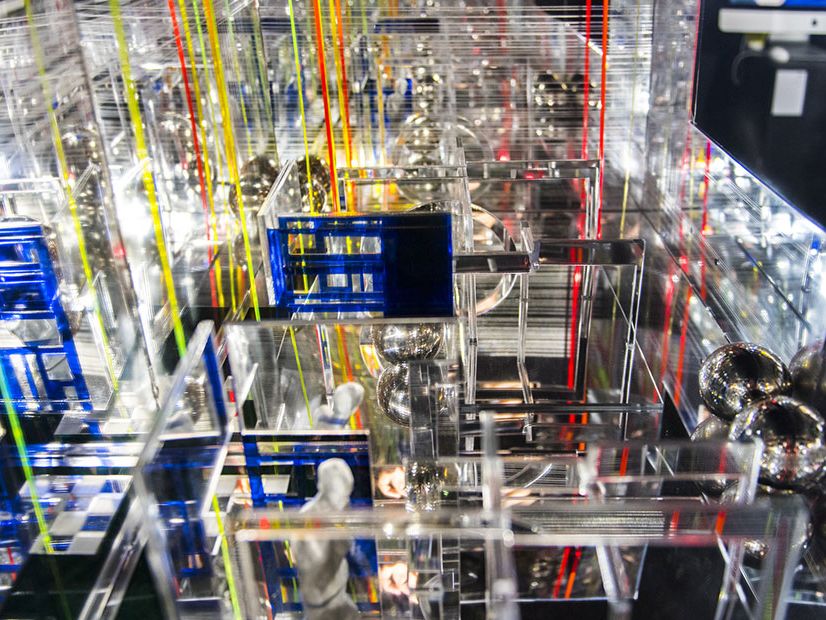At London College of Communication (LCC), our future-facing community of staff, students and professional partners work together to discover new possibilities in creative communications.
Using a mix of traditional processes and contemporary approaches, we learn, research, think and innovate to transform the world around us and shape the future of industry.
In 2020, media artist, educator and exhibition curator Dr Annie Wan joined LCC as our new course leader for BA (Hons) Virtual Reality, which supports undergraduate students to explore and experiment with new interactive tools for a range of areas including games, film, design and remote collaboration.
Annie is also project lead for our ACE IT initiative, a collaboration with London South Bank University (LSBU) which supports London-based start-ups and SMEs to solve business challenges using immersive technology. Participants are offered a fully-funded programme of expert support to develop their ideas while discovering the potential of merging physical and digital worlds through virtual (VR), augmented (AR) and extended reality (XR) more broadly.
We caught up with Annie to chat about her creative practice, why exploring XR is so exciting, and the ways ACE IT can help small businesses to adapt and innovate.

Tell us about your creative journey so far.
I studied for my Doctor of Philosophy at the University of Washington in Digital Arts and Experimental Media before 4 years of full-time teaching and administrative experience in digital media and technology.
My primary research interest is adopting extended reality (XR) technologies for wellbeing and social good.
What projects are you currently working on?
My current work in progress, Imperfectionist, is commissioned by Hong Kong’s West Kowloon Cultural District Authority. It enables audiences to experience the emotions and memories of others through designed virtual worlds that mimic mental images of people's lives during COVID. This could include feelings like self-isolation and loneliness, a sense of being watched, or anxiety and depression, among others. This project also functions as a spatial occupation which reflects the emotional interiority of our minds.
Artist Chris Milk suggests that Virtual Reality (VR) technology is an ‘ultimate empathy machine’, and the VR technology I’ve used in Imperfectionist is based on this idea. The immersive nature of the work allows visitors to put themselves in someone else’s shoes, and to explore the psychological landscapes of others during the most challenging time of our generation.
What drew you to the role of course leader for BA (Hons) Virtual Reality?
I think this position offers a very unique platform for exploring the design of immersive technologies while working on broadly defined immersive projects.
I like that both UAL and LCC have an emphasis on interdisciplinary programme structures. Being able to work in a dynamic, diverse and established environment with comprehensive resources means I can work with students collaboratively and creatively.
What do you think are the most exciting things about exploring the field of VR at LCC?
Students on our BA (Hons) Virtual Reality course are at the global forefront of developing the practice as both a discipline and as a suite of technologies, and their research will directly impact the continued growth of this industry.
They’ll have access to our state-of-the-art facilities, and have some really unique opportunities to collaborate with students on other courses within the Screen School, which could include BA (Hons) Film Practice, BA (Hons) Animation and BA (Hons) Games Design.
What are the most important things that you’d like your students to take away when they graduate?
I’d like for them to have developed their critical and inclusive thinking, as well as innovative ideas around immersive storytelling.
Additionally, they’ll have had the chance to learn core workflows in software such as Unity3D and AutoDesk Maya, as well as experience of developing immersive projects and experiences across fields like live-action 360-degree filmmaking, animation and games design.
Exploring Immersive Technology In My Business | ACE IT
Previous ACE IT participants discuss how the project helped them to overcome business challenges in exciting and creative ways.
(Note: This film was shot in early 2020 before social distancing measures were implemented.)
Tell us a little bit about ACE IT – who does the project help, and what does the project help them to do?
ACE IT aims to help small-to-medium sized businesses in London through immersive technologies like augmented and virtual reality (AR and VR). We offer our participants workshops, seminars and academic research support, as well as product and service development.
My team is great to work with, and ranges from VR tech experts and academics to marketing and project management professionals.
Why do you think LCC is well-placed to support ACE IT?
We have the knowledge and skills of an academic team working across a range of disciplines like film, animation, games design and immersive tech, as well as a great mix of Virtual Reality (VR) suites and motion capture facilities at the College.
What are the most exciting things about the project for start-ups and SMEs?
They get to develop their own pathway towards building key skills and ground-breaking products while future-proofing their business through immersive tech.
For traditional businesses, it’s a great opportunity to explore the world of new technology and think about how it can be used around their particular products or services.
Experimenting with new tools and approaches can really help people to grow their businesses and take them to the next level, which will be especially important after Covid.
Related links:
- Find out more about Annie and her work.
- Explore BA (Hons) Virtual Reality at London College of Communication.
- Applications for the Spring/Summer cohort of ACE IT are now open until 7 March 2021. Find out more and register your interest.
